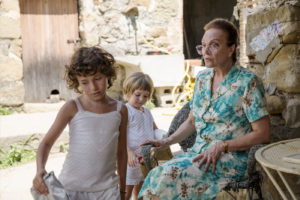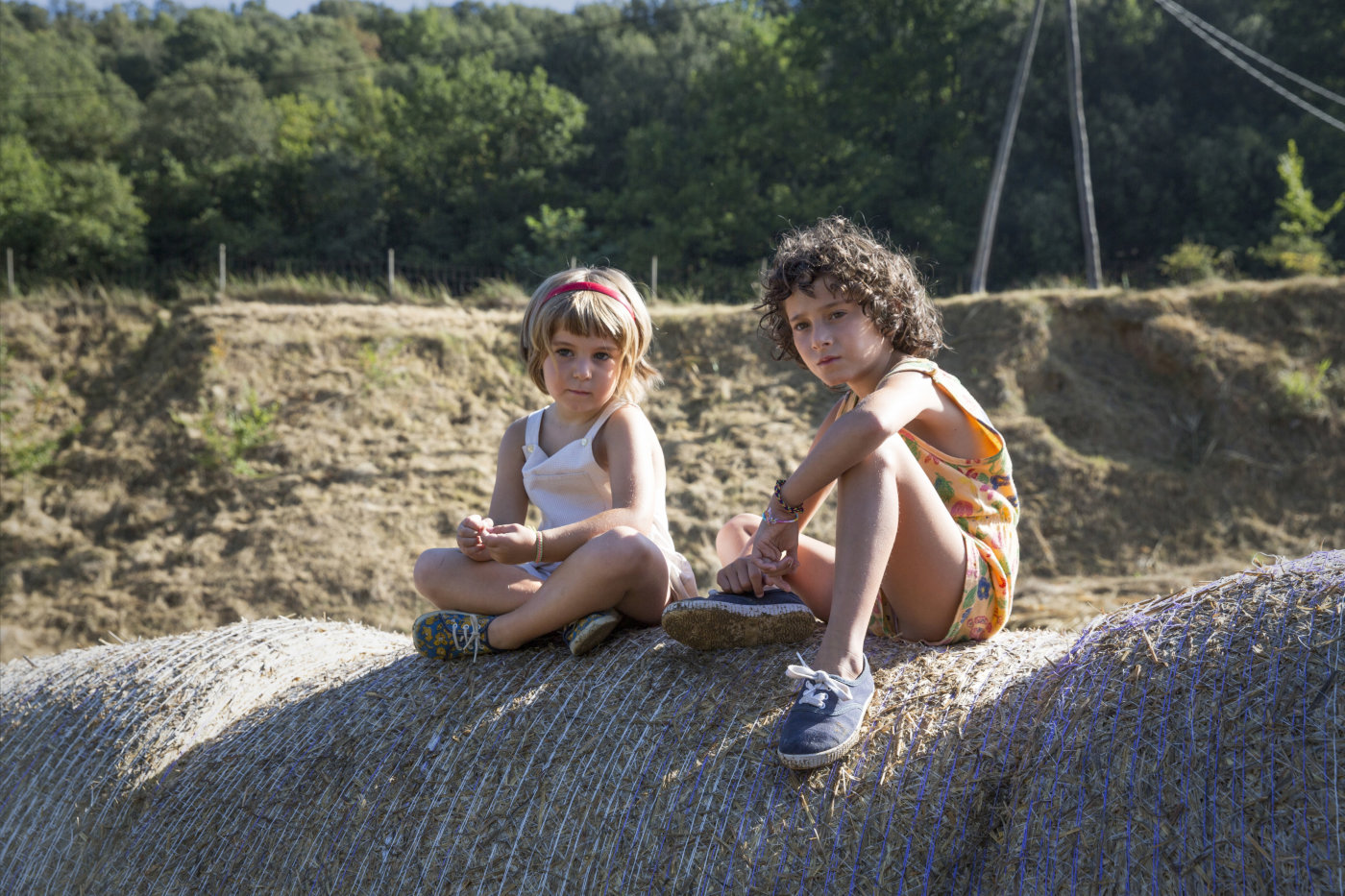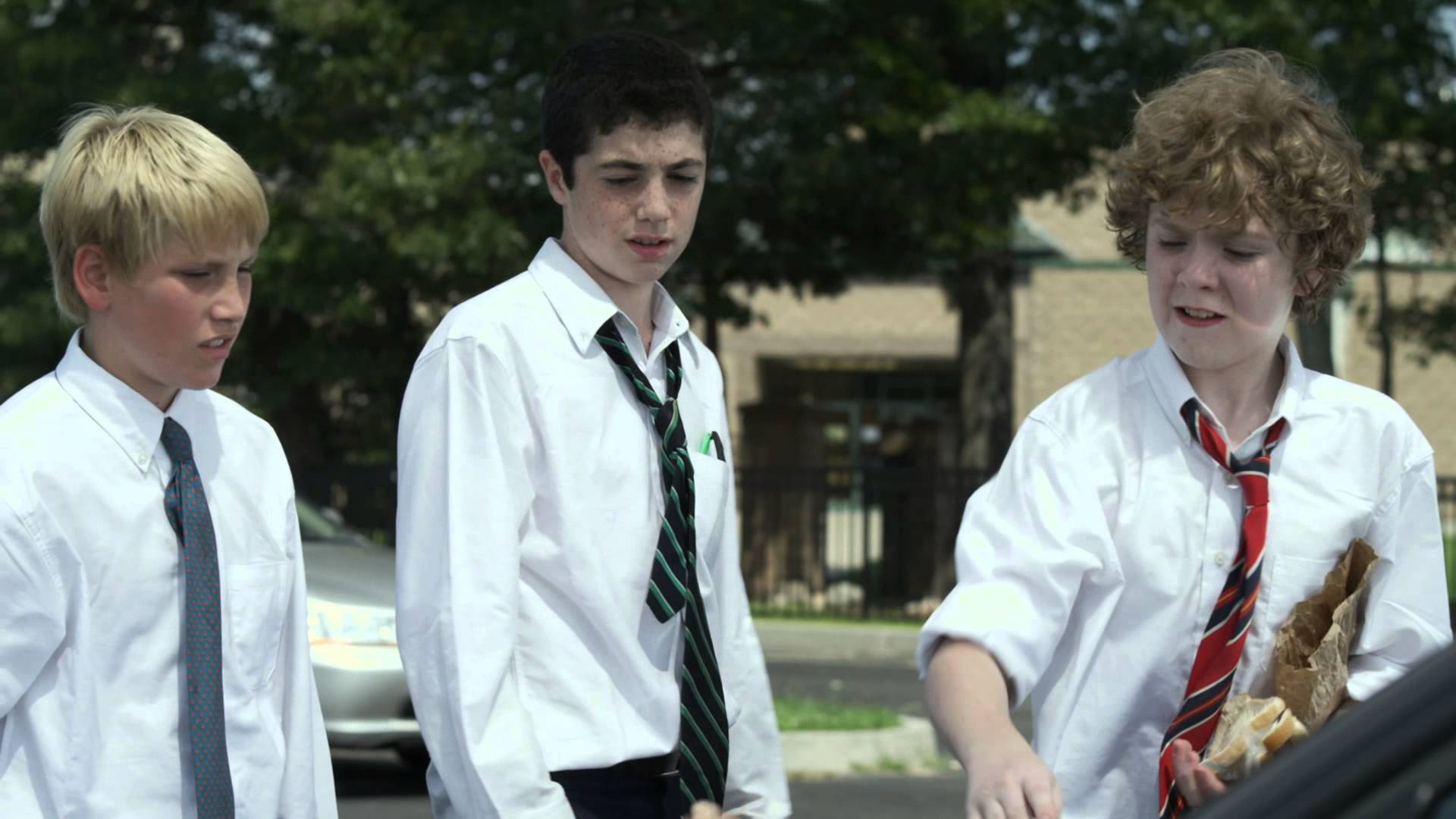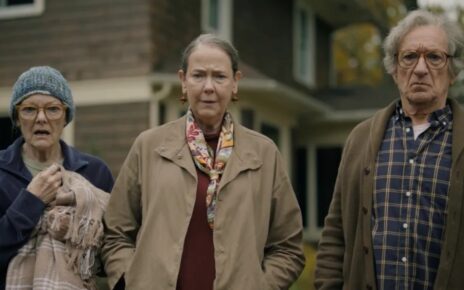It took what seemed like the entirety of 1993 for me to figure out why this film was made. Heck, it took 45 minutes of film time just for something to happen. These might seem magical feats to film festival crowds, but me? I need a reason to be there and Summer 1993 took far too long to arrive.
Summer 1993 did not endear itself early on. I’m curious if that was an intended feature. For my money, if you’ve got an orphaned child, mention that fact right up front, like freaking Harry Potter. Maybe I just didn’t get the subtle Catalan translations, but it was unclear to me as to why six-year-old Frida (Laia Artigas) is spending the summer in the country with her aunt and uncle. The movie’s title didn’t help much, either: “Summer 1993” implies a specific point in history where life is different; presumably, something pivotal happens during this time and it transforms the main character from who she was to who she is. In Summer 1993, everything of consequence happens off screen and the most pivotal event – the death of Frida’s parents — happens pre-film and isn’t discussed.
I’ll accept that I’m a moron or really slow on the uptake or whatever, but that still leaves a film in which the camera lazily voyeurs a little girl doing little girl things by herself for a summer. Uh oh, the film threw a curve at me; Frida is joined by her three-year-old cousin Anna (Paula Robles). At least now there’s a conversation, I suppose. Although it looks like Frida doesn’t care much for Anna. Geez, are you trying to kill your toddling cousin? Kill is a strong word and, trust me, there are no strong emotions in the first ninety minutes of this film. Frida just seems disaffected and horribly negligent. Is this the new orphan thing? An “I hate my li’l cousin” thing? Or is she just a sociopath?
I really don’t have much to say about Summer 1993. Here’s the camera. There’s a little girl doing little girl stuff in little girl time: coloring, eating ice cream, swimming, investigating nature, complaining about the blue nightie. I’d be kinda surprised if the script were more than twenty pages long. Bottom line is I really didn’t care about the girl. Does that make me a sociopath? I would have cared a little more if I’d understood from the outset that she was an orphan. But not a great deal more. I mean a few scenes call for Frida to be belligerent, which, after the fact, I can attribute to the unspoken pain she feels. OK. Fine. Yet while I might feel for the kid, I’m not liking her any better. Does she get a pass? Well, sure. I can give her that. But then why am I here? To see a little girl futz around for a half hour, misbehave when people show up, and then we forgive her for it? What kind of experience leads you to choose this?
me a sociopath? I would have cared a little more if I’d understood from the outset that she was an orphan. But not a great deal more. I mean a few scenes call for Frida to be belligerent, which, after the fact, I can attribute to the unspoken pain she feels. OK. Fine. Yet while I might feel for the kid, I’m not liking her any better. Does she get a pass? Well, sure. I can give her that. But then why am I here? To see a little girl futz around for a half hour, misbehave when people show up, and then we forgive her for it? What kind of experience leads you to choose this?
You can laud the performance of the little kid all you want, but she strikes me as someone not really acting, but living the tedious life of a six-year-old girl in the countryside. A life waiting for something to happen. Just like this film constantly waited for something to happen. In retrospect, I can generate sympathy, but don’t you dare ask me to generate applause.
A small child bereft of her care
Could inspire a deeply felt prayer
To parade it all day
With little to say
Which is the more tragic affair?
Not Rated, 97 Minutes
Director: Carla Simón (♪Anticipa-a-a-tion is making me wait … for the end♫)
Writer: Carla Simón
Genre: What might a six-year-old think?
Type of being most likely to enjoy this film: People who don’t need to be entertained by film
Type of being least likely to enjoy this film: Me, apparently



